Have you ever wondered how long it actually takes to rehydrate a dog? You might be surprised to learn that the answer isn’t as straightforward as you might think.
The duration of rehydration for a dog can depend on several factors, including the degree of dehydration and the methods used to administer fluids. Understanding these important facts can help you ensure the well-being of your furry companion.
Key Takeaways
- Signs of dehydration in dogs include excessive panting, loss of appetite, vomiting, diarrhea, and lethargy.
- Treating canine dehydration involves encouraging drinking water and electrolyte-enhanced fluids, seeking veterinary care for severe dehydration, providing a cooler environment, and monitoring for persistent vomiting or signs of heatstroke.
- To rehydrate a dog, ensure a cooler environment, provide access to water or an electrolyte solution, monitor water intake, and prevent excessive drinking by spacing out water intake and starting with small amounts. Strategies like providing moving water, flavored water, and frozen treats can also encourage water consumption.
- Dehydration tests that can be conducted at home include checking the dog’s gums for stickiness and dryness, performing the capillary refill test by pressing a finger against the gums and observing color return, and monitoring skin elasticity by gently pulling up the skin at the back of the neck. It is important to consult a veterinarian if signs of dehydration or inadequate water intake are observed.
Signs of Dehydration in Dogs
If your dog is showing signs of dehydration, it’s important to take action promptly to rehydrate them and prevent further complications. Canine dehydration can occur due to various factors such as excessive panting, loss of appetite, vomiting, diarrhea, lethargy, decreased energy, and dry nose, gums, and eyes.
If you notice these symptoms, your dog might be dehydrated and needs immediate attention. Ensure your dog has access to fresh, clean water at all times and encourage them to drink.
If your dog is showing signs of severe dehydration, it’s crucial to contact your vet immediately. Rehydrating your dog may involve providing them with an electrolyte solution or encouraging them to drink small amounts of water frequently. It’s important to monitor their water intake and ensure they’re gradually rehydrating.
Dehydration in dogs can lead to serious health issues, so being proactive and attentive to the signs of dehydration is essential for your dog’s well-being.
Treating Canine Dehydration
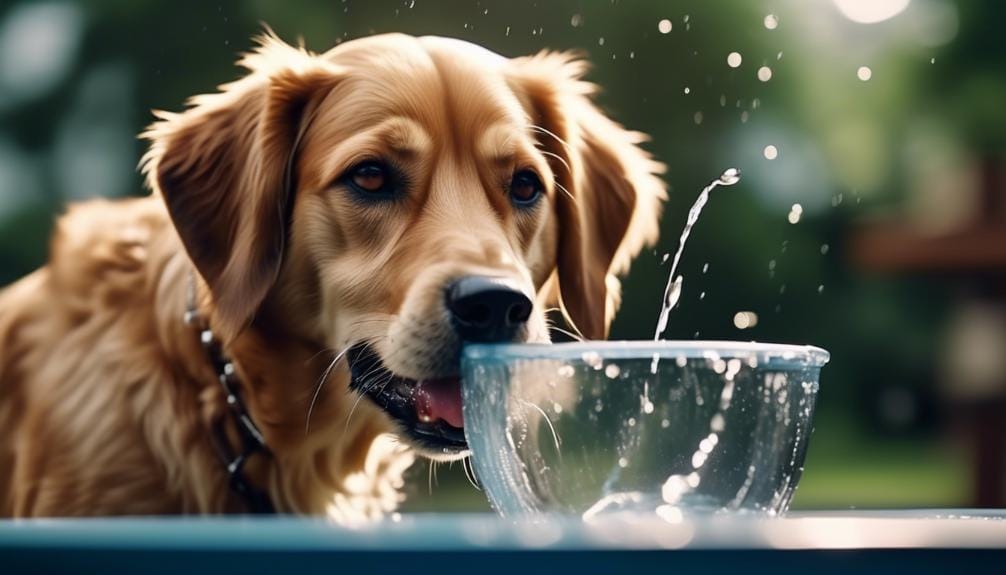
As you address the signs of dehydration in your dog, it’s crucial to understand the effective methods for treating canine dehydration and restoring your pet’s well-being. Encouraging your dog to drink plenty of fresh, cool water is essential. You can also consider offering electrolyte-enhanced fluids like Pedialyte to help replenish the lost electrolytes. Additionally, it’s important to make sure your dog has access to shade or an air-conditioned environment to prevent further dehydration.
When dealing with mild dehydration, you can start rehydrating your pet with water or an electrolyte solution at home. However, for severe dehydration, seeking immediate veterinary care is crucial. Veterinarian-administered subcutaneous or intravenous fluids may be necessary to effectively rehydrate your pet. Also, keep an eye out for persistent vomiting or signs of heatstroke, as these may indicate a medical emergency requiring immediate attention from a vet.
To make it easier to understand, here’s a helpful table outlining the key points for treating canine dehydration:
| Treatment for Canine Dehydration |
|---|
| Encourage drinking water and electrolyte-enhanced fluids |
| Seek veterinary care for severe dehydration |
| Provide shade or air-conditioned environment |
| Monitor for persistent vomiting or signs of heatstroke |
| Administer subcutaneous or intravenous fluids if necessary |
How to Rehydrate a Dog
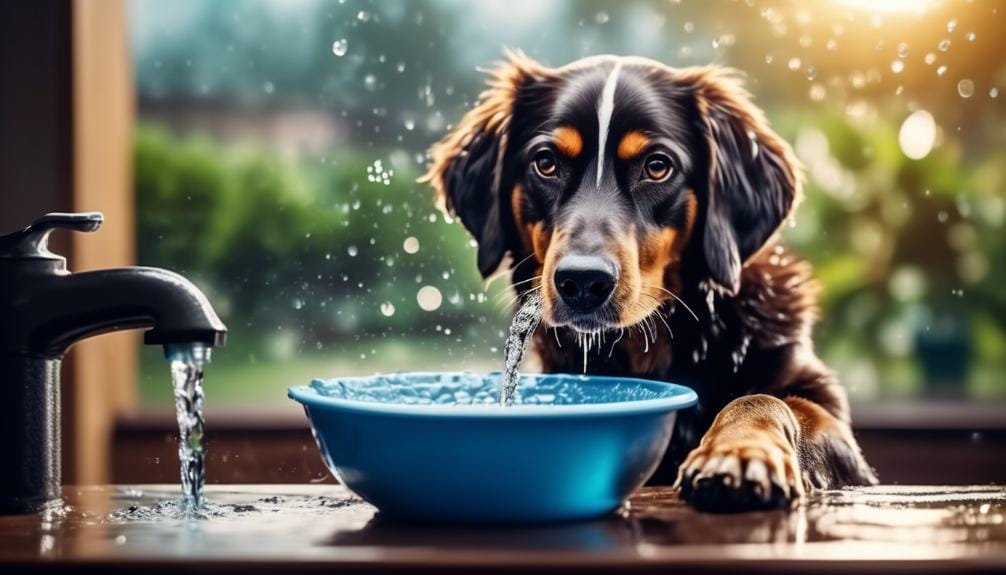
To rehydrate a dog effectively, ensure a cooler environment and provide access to water or an electrolyte solution. When rehydrating your dog, it’s essential to monitor their water intake. Prevent excessive drinking by spacing out water intake and starting with small amounts.
A good guideline for water intake is 1 ounce of water per pound of body weight per day. Make sure to provide constant access to clean water to prevent dehydration, adjusting intake based on the weather and your dog’s activity level.
Encouraging water consumption in poor drinkers can be achieved by using strategies such as providing moving water, flavored water, frozen treats, and other creative measures. Keep an eye on your pet’s gums – if they’re sticky or dry, it could indicate dehydration.
Dehydration Tests
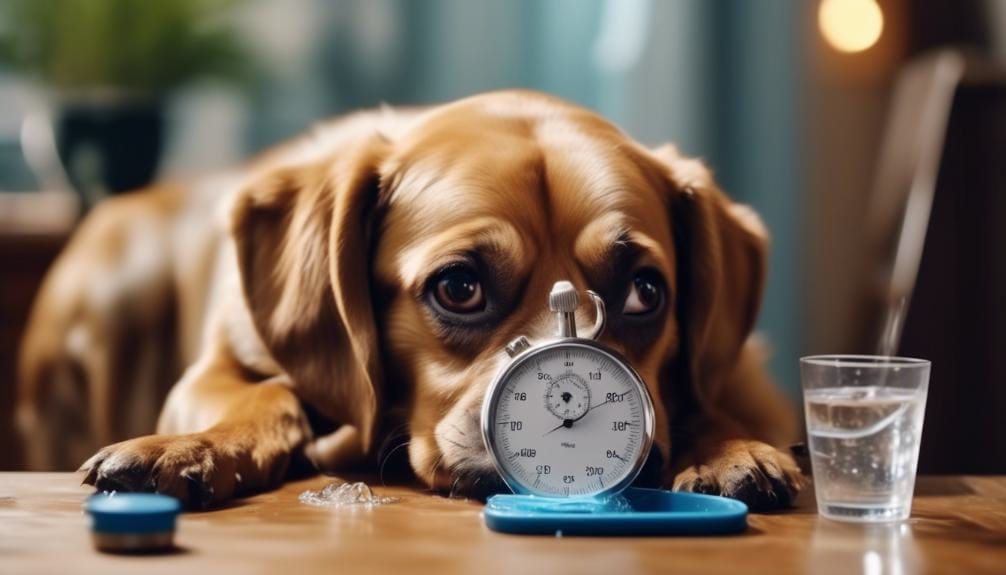
Monitoring your dog’s hydration levels can be achieved through performing dehydration tests, which are essential for assessing their well-being and preventing health issues.
To ensure your pet is adequately hydrated, regularly check your dog’s gums, as a dehydrated dog may have sticky and dry gums. Additionally, the capillary refill test is an effective way to assess hydration status. Press your finger against your dog’s gums and then release; normal color should return within two seconds. Any delay could indicate dehydration.
Lastly, monitoring the skin elasticity is crucial. Gently pull up the skin at the back of your dog’s neck; it should quickly return to its original position. If the skin remains lifted or returns slowly, your dog may be dehydrated.
Understanding and conducting these tests at home can help you detect dehydration early. However, if you notice signs of dehydration or suspect your dog isn’t drinking enough water, consult your veterinarian promptly.
Staying Hydrated
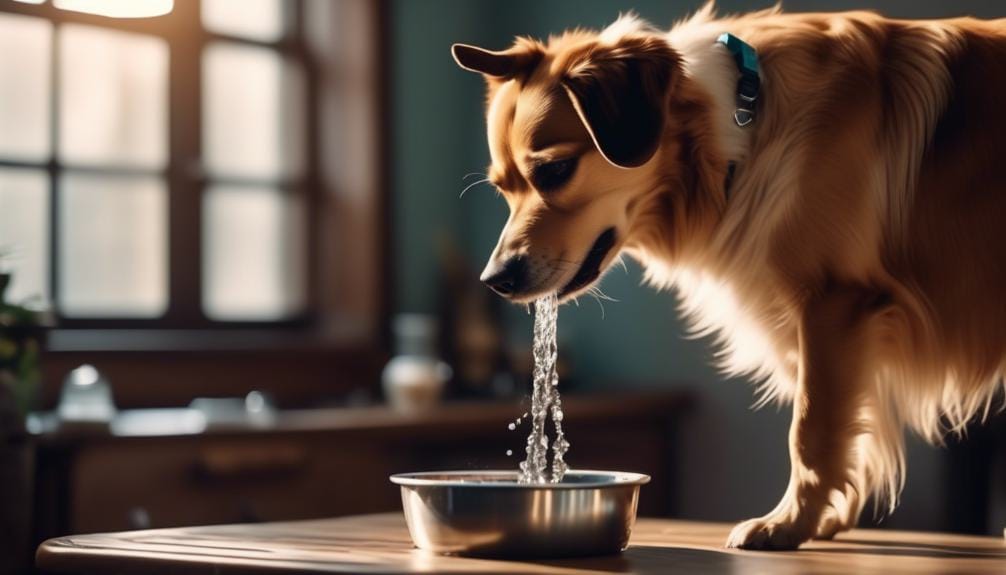
Ensuring your dog’s hydration is crucial for maintaining their overall health and well-being. It’s important to provide access to water at all times and encourage your furry friend to drink water regularly. Here are some tips to help your dog stay hydrated:
| Tip | Description |
|---|---|
| Clean Water | Make sure your dog always has a fresh water bowl available. Change the water regularly to keep it clean. |
| Ice Cubes | On hot days, drop a few ice cubes into your dog’s water bowl to keep the water cool and refreshing. |
| Adjust Intake | Monitor your dog’s water intake, especially during hot weather and after vigorous activity. |
| Personalized Plan | Consult your vet to determine the appropriate amount of water your dog should be drinking based on their condition. |
Staying hydrated is essential for preventing dog dehydration. Remember that a dog should drink about 1 ounce of water per pound of body weight per day. If you notice symptoms of dehydration or suspect your dog is in a state of mild dehydration, encourage them to drink water and seek advice from a vet immediately. By taking proactive measures to ensure your dog stays hydrated, you can help them lead a healthy and happy life.
Frequently Asked Questions
How Long Does It Take to Rehydrate a Dog?
It takes time to rehydrate a dog, but ensuring access to water and electrolyte-enhanced fluids, monitoring their recovery, and seeking veterinary care for severe cases are essential steps. Remember, patience is key in this process.
How Does a Dog Act When Dehydrated?
When a dog is dehydrated, it may pant excessively, have reduced energy levels, and display dry, sticky gums. Additionally, it might show signs like a dry nose, loss of appetite, and sunken, dry-looking eyes.
How Can I Hydrate My Dog Fast?
To hydrate your dog fast, move them to a cooler spot, offer small amounts of water or electrolyte solutions, and monitor their recovery. Space out water intake to prevent vomiting and consult a vet for personalized recommendations.
Can a Dog Come Back From Dehydration?
Yes, a dog can come back from dehydration with prompt treatment. Rehydration involves providing fresh water, contacting a vet, and possibly using an IV drip. It’s crucial to monitor your dog’s hydration levels closely.
Conclusion
In conclusion, rehydrating a dog can vary in duration depending on the severity of dehydration.
It’s important to monitor your dog for signs of dehydration and seek veterinary care if necessary.
Mild dehydration can often be treated at home with fresh water or electrolyte solutions, but severe dehydration may require intravenous fluids.
Remember to always provide your dog with access to clean water and consult with a veterinarian for personalized fluid intake recommendations to prevent dehydration.



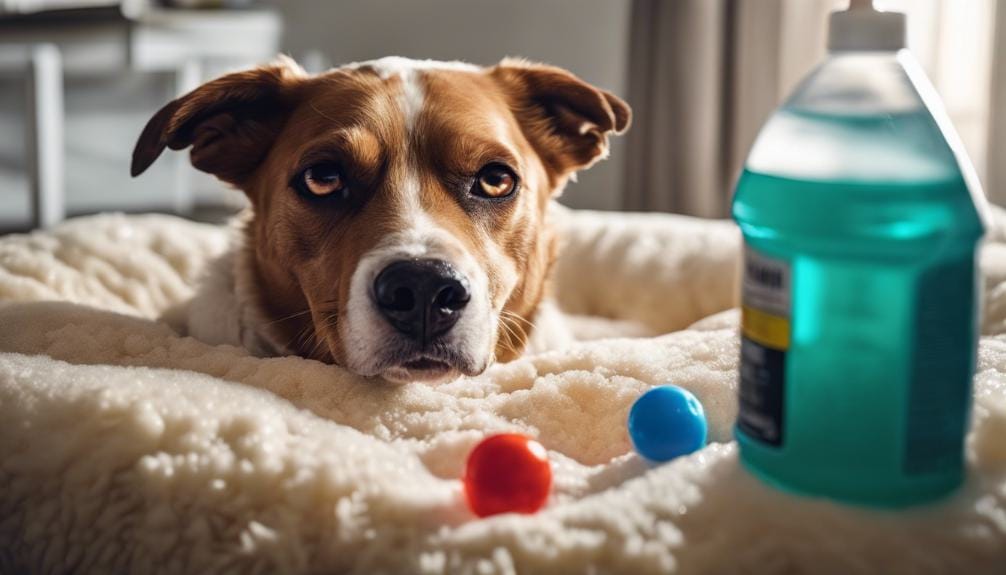
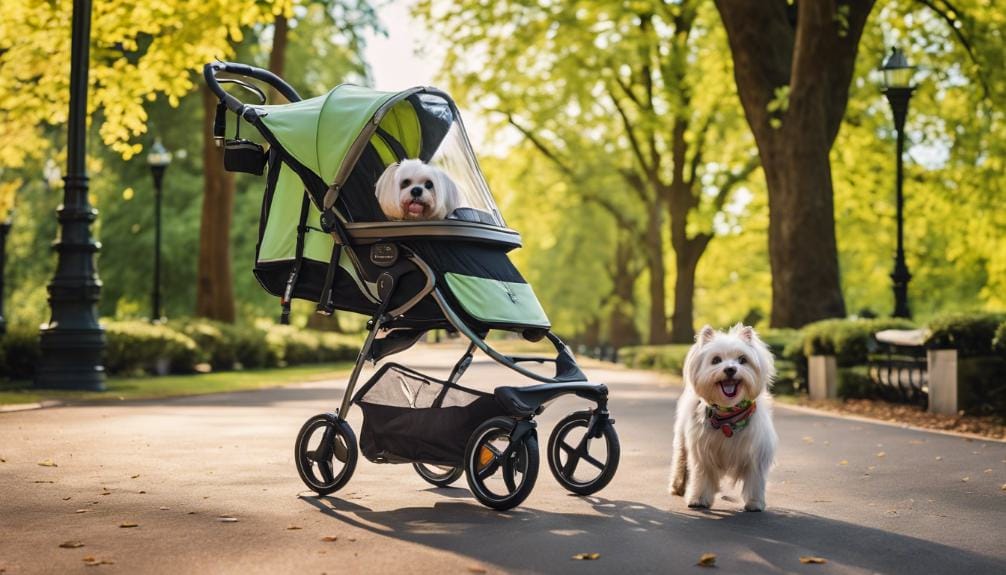
Leave a Reply
You must be logged in to post a comment.